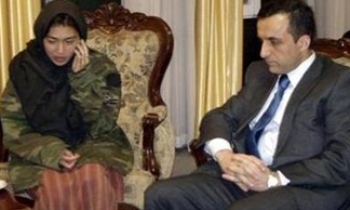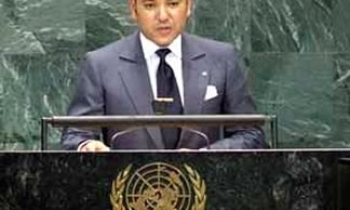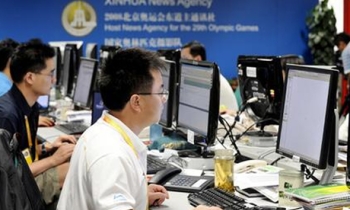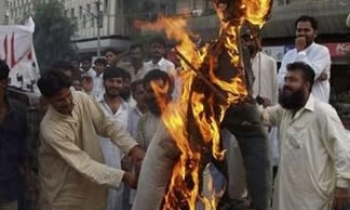Perhaps the history of the world would have turned out differently if, in the beginning, there had been that remarkable little invention—the mobile telephone. Imagine Prophet Mohammed chatting with his loyal men before making the historic journey from Mecca to Medina. Imagine the crusaders halting halfway to the gates of Jerusalem because of an SMS message. The course of world events would have been altered, Samuel Huntington would not have written The Clash of Civilisations, and we would not be living in an age of fear of the terrorist.
But the folks at India TV appear to have confused the age of mobile technology with the age of the Prophet.
The channel's formula for grabbing viewers in its target audience—residents of UP small towns—appears to be simple: corner a bearded maulana, ask him ludicrous questions about Islam, get a guest to discuss such rubbish with utmost seriousness and put out a lengthy segment on prime-time news about Muslims, Islam, fatwas and burkhas. In short, woo the
viewer by tapping into all their prejudices about Islam.
But the mobile story was really a stretch. Some Saudi Arabia cleric has declared the cellphone un-Islamic. So Rajat Sharma, hosting the news, solemnly asked the Imam of Delhi's Fatehpuri mosque for his views. The good maulana pondered and declared that if the ringtone was the azaan (call to prayer) Allah-o-Akbar, but someone shut it halfway, it would be insulting the faith. More talk followed but the host had already delivered the punchline: "Does this mean that Islam is opposed to the mobile phone," he asked earnestly.
The manner in which Muslims are paraded before the media (often willingly) and every Muslim issue hyped is no laughing matter.
Sociologists and historians point to two defining events in the Indian approach to Muslims. The Partition and, now, the issue of global jihad. National Conference president Omar Abdullah, MP, says the temptation to play divisive politics structured around vote-banks is getting stronger. "In power, the BJP had tried to put this behind them.
But out of power, they want to return to it."
The middle ground, Omar says, has shifted. It's fine to provide affirmative action to Dalits and OBCs but Muslims are a big no even though they may be poorer and more backward. The years of BJP rule changed the discourse to the extent that being pro-Muslim amounts to being anti-national in some quarters. The tale got a new twist with the revelation that terrorists may be Muslims from mainstream India. "As long as only Kashmiris were terrorists, the Indian state had no problem," says Omar.
Asaduddin Owaisi of the Hyderabad-based MIM elaborates. "The Sachar report just highlights what we have always known," says the London-educated MP. The Mumbai blast victims got Rs 5 lakh, Muslims killed in Malegaon Rs 1 lakh. He argues that fear of the BJP shouldn't stop Muslims from demanding their rights. "We should get reservation not on religious grounds but because of our socio-economic conditions." He offers a revealing statistic: in the one year Andhra Pradesh gave reservation to Muslims, 180 entered medical colleges.
With a few exceptions, most politicians do not blame the media for the portrayal of Muslims. Says Omar: "Ask the Congress party. They ruled the country for decades. The media just reports what is being said about Muslims." The prejudice, they say, exists in the system, the administration. Take the polio eradication scheme where so much has been made of Muslims refusing to take the drops. Dr K. Srinath Reddy, president of the Public Health Foundation of India, says this has nothing to do with religion but with illiteracy and backwardness. "It is tendentious to link this with Islam."
The media merely reflects larger social attitudes.Star News CEO Uday Shankar says the channel has a policy of not giving space to every fringe cleric looking for publicity. "I find the print media more guilty of giving publicity to suspect characters." Q.W. Naqvi, news director, Aaj Tak, says his channel makes it a point to air views of liberal Muslims. But he reveals that Aaj Tak doesn't get a "spike" (professional jargon for increase) in viewership from so-called Muslim stories. Says Naqvi: "The Imrana story did not push up our ratings. The Malegaon blasts did average business though the Mumbai blasts were huge. TV viewers want crime, cinema and cricket."
Given the desperate hunt for ratings, an anchor bringing a bearded gent to say something absurd should just be dismissed as another ploy to attract viewership on the daily news.









